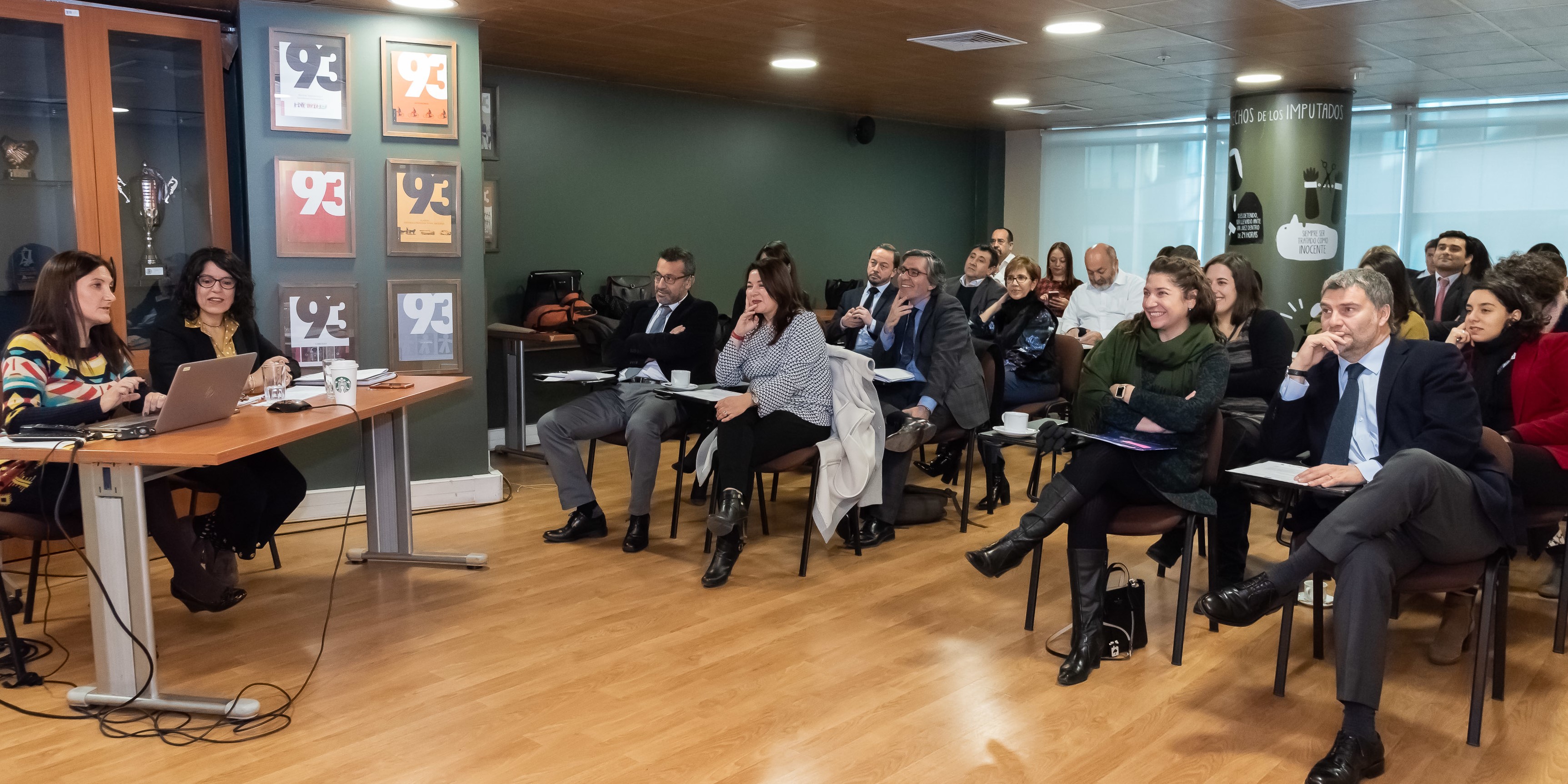The new model will close gaps in inequality and discrimination towards migrants and foreigners in access to justice

Within the framework of the Programme for Social Cohesion in Latin America, the European Union EUROsociAL+ programme is accompanying the Public Criminal Defence (PCD) in Chile in defining and implementing a criminal defence model for migrants and foreigners in the country.
To understand the needs and challenges faced by the PCD in defending migrants and foreigners, it is important to point out that Chile has experienced important changes in migration patterns in recent decades. Although Chile was historically a country with little migration, the return to democracy, and the associated stability and economic growth, has resulted in an increase in the number of migrants in search of better living conditions. According to data from the National Statistical Yearbook of Migration compiled by the Ministry of the Interior’s Immigration Department, the number of immigrants and refugees in Chile has grown by 123% compared to the last Census in 2002, and there are currently 410,988 foreigners living in Chile (2.3% of the total population). To this is added the existence of an ambiguous and obsolete migration law dating from 1975 (Decree Law 1094 on Foreigners and Immigration), and a draft Migration Law, currently under discussion in the National Congress.
At the international level, migrants, according to the International Convention for the Protection of Migrant Workers and their Families, are a group that are especially vulnerable. For its part, the Brasilia Regulations regarding Access to Justice for Vulnerable People and the Ibero-American Protocol for Judicial Action to Improve Access to Justice, include migrants and foreigners as people in a situation of special vulnerability. They, therefore, require specific protection against situations of abuse or discrimination because they are not nationals, have high economic vulnerability, job instability, high living costs, migratory instability and find it difficult to regularise their migratory status, etc., circumstances that are common in the contexts of migration.
Within this framework, the objective of EUROsociAL+ to accompany the Chilean Public Criminal Defence is aimed at addressing the problems of access to justice for migrants and foreigners, incorporating the particular needs of these people into the analysis, preparation and provision of the defence of their rights before the judicial and administrative authorities, seeking to comply with the legal and international obligations regarding access to justice for these vulnerable people.
With this objective, diagnosis of the criminal defence of migrants and foreigners in Chile has been carried out, and a specific defence model has subsequently been defined. The new model was presented at a workshop held in Santiago de Chile, which was attended by the national ombudsman, Andrés Mahnke and the cooperation projects officer of the European Union Delegation in Chile, Roxana Martinelli, who highlighted the importance of closing gaps in inequality and discrimination towards migrants and foreigners in access to justice.
The presentation of the specialised defence model for migrants was carried out by EUROsociAL+ experts, Carmen Miguel Juan and Macarena Rodríguez, and was attended by the public defenders of the Specialised Defence Unit at the National Ombudsman’s Office, as well as the heads of the Metropolitan and Antofagasta Regional Defence Office and local public defenders.
Among other initiatives, the model proposes the creation of specialised defenders, in areas of high migratory flow and preferential defenders in the others, clear protocols for action and mechanisms for disseminating rights in transit areas. In addition, the defendants should have the right to an interpreter and to receive information about the possible consular assistance they may request. This new model will be implemented in 16 legal clinics nationwide.
EUROsociAL+ is a cooperation programme between Latin America and the European Union which seeks to contribute to improving social cohesion in Latin American countries, as well as to institutional strengthening through supporting their processes for the design, reform and implementation of public policies. This activity is part of the access to justice line within the Democratic Governance Area coordinated by FIIAPP.
More information at: http://www.dpp.cl/sala_prensa/noticias_detalle/8639/expertas-de-eurosocial-presentan-modelo-de-defensa-especializada-para-personas-migrantes-y-extranjeras
Área de políticas de gobernanza democrática. Democratic governance area / EUROsociAL+



